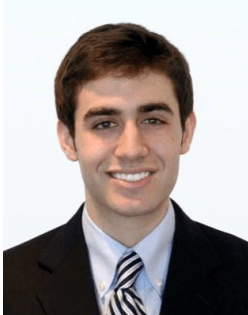For traders of the Japanese yen, the first BOJ meeting under the new leadership is a huge event, as expectations are very high. However, the BOJ may announce only a limited policy change at first, before making a bigger move., as Christopher Vecchio of DailyFX explains in detail.
In the interview below, Vecchio also addresses the impact of the FOMC meeting on markets. This is the first part of the interview. A second part, focusing on Cyprus, will be published after the Easter holiday.
Christopher Vecchio is a currency analyst for DailyFX. With a background in political science and law, he focuses on the interrelationships between geopolitical events, macroeconomic trends, and market reactions. Also an active trader, Christopher monitors the markets around the clock. Expertise: News events, market reactions, and macro trends.
When considering Kuroda’s likelihood path of easing, he’s going to implement policies that aren’t too controversial, as he does need to be reelected after April 8, due to the technicality of Masaaki Shirakawa resigning early on March 19 (Kuroda needs to finish Shirakawa’s term).
If he sets forth policies that are too dovish, he and his deputy governors could lose favor quickly among the main opposition DPJ, especially Kikuo Iwata. Earlier this week, Governor Kuroda made clear that two things will happen in his tenure: the BoJ will hit its inflation target of +2.0% y/y within two years; and resulting from the increased inflation target, increased asset purchases, likely including Japanse Government Bonds (JGBs).
In this interim period before April 8, we should expect Kuroda’s BoJ to first increase its monetary easing program. If increased asset purchases don’t stoke medium-term inflation (they won’t), Kuroda’s BoJ will wait until after the next round of confirmations before accelerating the Shirakawa-mandated open easing timeline from January 2014 to midyear 2013.
I suspect so. It’s clear that Fed policymakers are taking a more optimistic outlook on the economy. Even though the recent meeting produced economic forecasts that I would described as “uninspiring,” I believe that despite the ceiling for growth has been lowered, the floor has been at least firmed slightly, given the strength of the US consumer in the beginning of 2013.
Considering the pace of quick government austerity – defense spending declined by -22.1% y/y annualized in the 4Q’12, while the payroll tax resulting from the fiscal cliff deal stuck workers with an extra -2% per paycheck – a resilient US consumer is key to the recovery going forward.
If Congress actually does its job and lessens the current fiscal drag, the US economy will be in even better shape, prompting an even more hawkish Fed. In the near-term, I expect the coming Minutes to focus on the fiscal drag and the uninspiring economic forecasts, so a muted bullish reaction should be expected.
You can follow Vecchio on Twitter: @CVecchioFX
Further reading: a past interview with Vecchio: Without a Higher Participation Rate, US Job Growth Will Not Last Too Long

